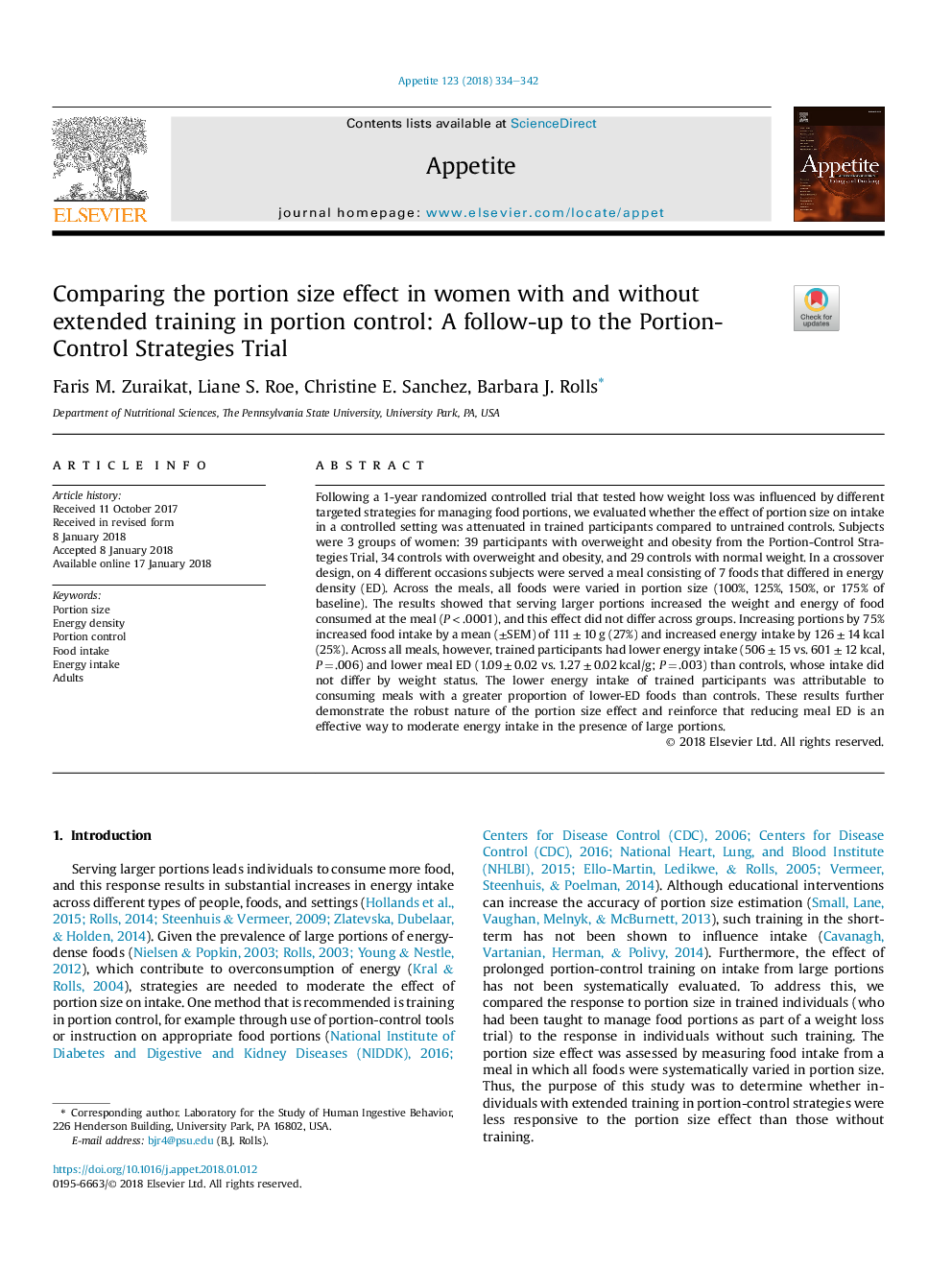ترجمه فارسی عنوان مقاله
مقایسه اثر اندازه بخش در زنان با و بدون آموزش گسترده در بخش کنترل: پیگیری به دادرسی استراتژی های کنترل بخش
عنوان انگلیسی
Comparing the portion size effect in women with and without extended training in portion control: A follow-up to the Portion-Control Strategies Trial
| کد مقاله | سال انتشار | تعداد صفحات مقاله انگلیسی |
|---|---|---|
| 120361 | 2018 | 9 صفحه PDF |
منبع

Publisher : Elsevier - Science Direct (الزویر - ساینس دایرکت)
Journal : Appetite, Volume 123, 1 April 2018, Pages 334-342
ترجمه کلمات کلیدی
اندازه قسمت، تراکم انرژی، کنترل بخشی، مصرف غذا، مصرف انرژی، بزرگسالان
کلمات کلیدی انگلیسی
Portion size; Energy density; Portion control; Food intake; Energy intake; Adults;

